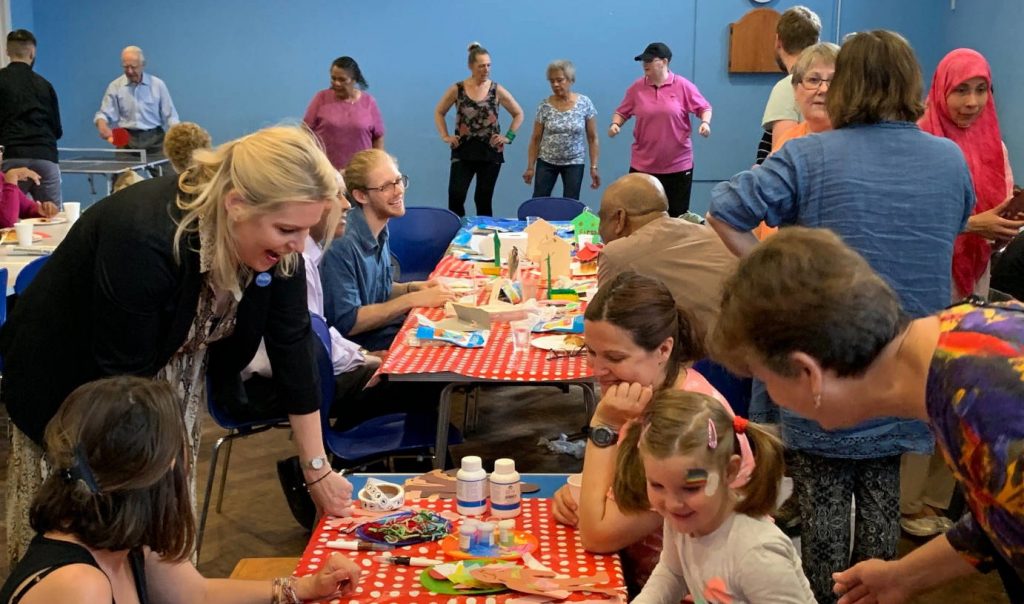
This is the editorial from our Autumn 2021 newsletter. To access the full newsletter in your browser click here or to download as a pdf, click here
Click below to listen to a recording
And I will put my Spirit within you, and you shall live, and I will place you in your own land.
Ezekiel 37.14
There is a lot of talk across the churches about mission in a post-Covid society. People are eager to make plans. But our response will only work if we comprehend what has gone wrong. The unravelling we see around us is not primarily caused by the Coronavirus. The pandemic is exposing and speeding up forces which have been corroding our civic life for over forty years. The symptoms we see are the inevitable consequences of a hyper-liberal philosophy, of both the left and the right. This individualism has wreaked catastrophic effects on our institutional and social relationships and our sense of belonging, resulting in extreme inequality, mutual suspicion, loneliness and nihilism.
By contrast, our faith centres around an act of reconciliation between God and humankind. It is fundamentally relational. The vocation of the church at this time – where ‘church’ is understood as groups of faithful people – is not only to be gathered inside, but also outside, living in loving friendship with others in the neighbourhood.
We must keep our eyes on the Kingdom and on faithful relationship. The common good properly understood is not a programme or campaign and it is not utopian. It is about living a shared life, at once both conservative and radical, an orientation that liberates the human heart. It is a relational insurgency against a corrosive philosophy that is literally killing humankind and wrecking the planet. Despite their vulnerability, churches are uniquely placed to be carriers of this antidote, to be the embodiment of love, as sojourners in a broken world.
We are at the beginning of a very big change. In political terms, the common good proposes a settled pluralism of identities and interests. Our posture therefore must be to bring people together to ensure that everyone is included, no one is left behind. Despite many failures in our changing politics, there is real hope in the Levelling Up agenda. But government cannot, and should not, do it all. The work of the local church, as a dynamic Eucharistic community, is to keep alive and strengthen the human space where people can encounter God’s love, participate and talk freely, free from fear of derision, coercion or division.
The local is where change will happen. Our unique civic vocation is to assemble, to develop leaders, to build relationship where God has placed us. Not to be like other institututions, not to be subordinated to secular agendas. Rather than re-educating people, our mission is about loving our neighbour, recognising our common need for meaning and belonging. It calls for an unglamorous leadership concerned less with career, management or administration, rather a Christ-like ministry devoted to loving, listening, and staying. It calls for a leadership able to receive as well as give, whose covenantal promise means accompanying people and staying for the long term.
So in this edition, we are honoured to share the testimony of two exceptional people who bear living witness to this kind of commitment. Sally Mann, a Baptist minister in Newham, argues for the deep value of staying put, while Henry Corbett, an Anglican vicar in Liverpool,is a living example of covenantal, long term commitment, choosing to stay, to love and to serve. And reflecting on our unsettled and contested pluralism, our latest public conversation examined what the common good means for society, featuring David Goodhart, Trevor Phillips and Julia Unwin – don’t miss the video and news of our next event. Finally, as usual, you’ll find our latest recommended books and articles.
Every blessing, as always
Jenny Sinclair
Founder and Director, Together for the Common Good
Like what you are reading? More inspirational content from Jenny Sinclair can be found here: https://togetherforthecommongood.co.uk/news-views/from-jenny-sinclair

